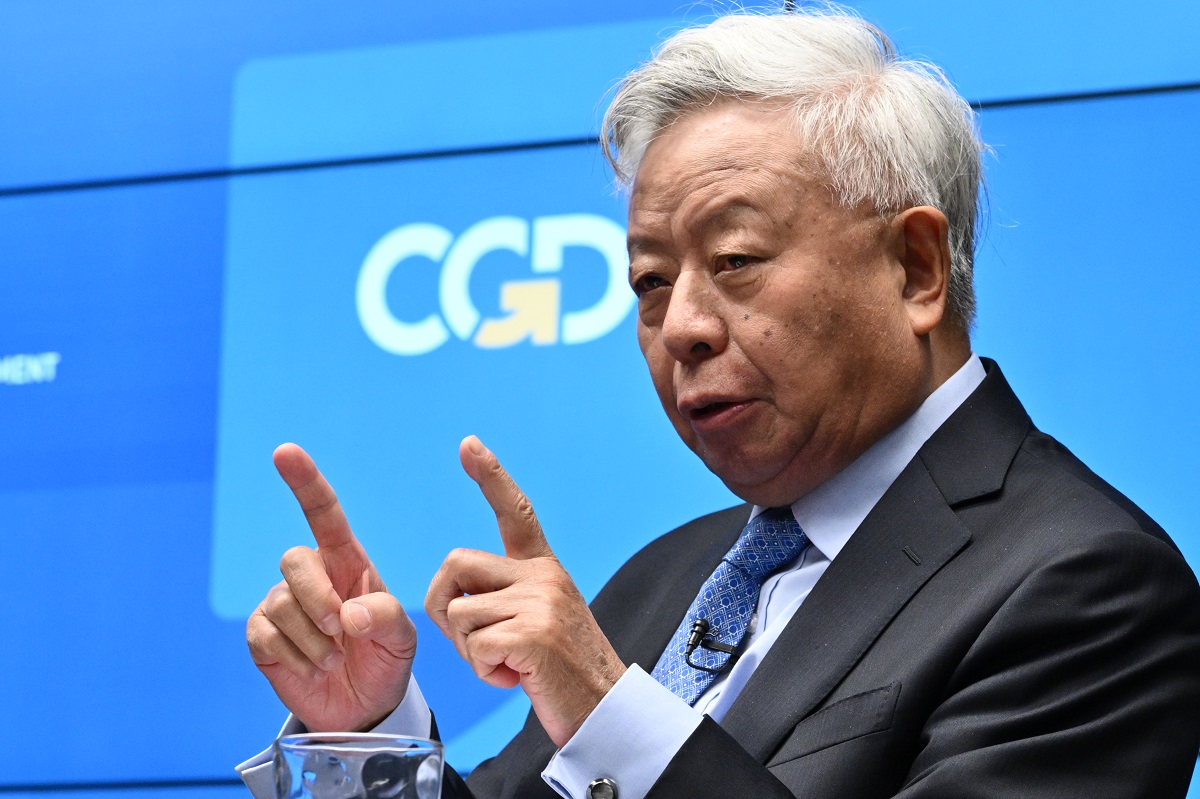Botswana's president,
Festus Mogae, held a private luncheon at CGD on Wednesday. (In a triumph of protocol, the president was allowed to serve himself first from our modest buffet.) After that he gave a well-attended
public speech. In both forums, the discussion revolved around three questions. The first looked to Botswana's past, addressing the replicability of Botswana's spectacular rise elsewhere; the other two looked forward, asking whether Botswana can sustain its own miracle.
1. How did Botswana avoid 'resource curse' and use its diamond revenue to spark sustained growth?The president noted that his predecessor, Seretse Khama, transferred rights to subsoil diamonds away from Khama’s own tribe -- the Bangwato -- to the state. Crucially, Khama did this before the diamond revenues began to flood in; it is much easier to redistribute hypothetical income than actual income. President Mogae also mentioned the skill of the team that negotiated with
De Beers, plus their prescient decision to reinvest some of their royalty revenue back into De Beers -- thus turning Botswana's diamonds into a triple payday of royalties (50%), corporate taxes, and dividends.
Economists have noted the importance of centuries-old political institutions in shaping the transparent governance that ensures those revenues really do end up in the Treasury. Both this and the president's above point about timing, unfortunately, call into question the simple replicability of a "Botswana model" elsewhere. The president said little to allay such doubts.
2. How has Botswana begun to turn the corner on the HIV/AIDS epidemic?President Mogae noted that Botswana has led Africa in its embrace of routine opt-out HIV testing. (On September 21st, the
United States followed Botswana's lead.) Free condoms are universally available. Observers noted that from very early on Botswana has taken the epidemic seriously -- in stark contrast to its large neighbor to the south -- and currently provides antiretroviral therapy to almost all who need it. Today only 6% of births to HIV-positive Botswana mothers result in an HIV-positive baby.
3. Why are foreign investors still hesitating to enter Botswana?Botswana is small, semi-arid, and landlocked. Some of the same Taiwanese textile firms that went to Mauritius initially considered Botswana, but were dissuaded by high ground transportation costs to get products out. Recent efforts to privatize Air Botswana have been stymied by investors unwilling to put their money into Botswana and especially into airlines.But there are ways out. Botswana has lower corporate taxes, less bureaucracy, and a better-educated workforce than South Africa, and has publicly assumed much of the HIV treatment burden (so employers won't have to). It also boasts political stability, accountable democracy, and a very high-quality infrastructure, especially in telecommunications. Several around the lunch table urged the president to leverage these rare advantages by attracting investors, particularly American investors, in the information sector.He agreed this was a priority, and noted his country's efforts to lessen Botswana's isolation by pushing for the
SADC free trade zone (.pdf) and by participation in the
Eastern and
Western Africa Submarine Cable initiatives. Recent trade preferences established under
African Growth and Opportunity Act might also help bring investors in. President Mogae noted that he had to fight for two years to get Botswana included in the original 2000 list of
AGOA-eligible countries, over resistance due to the country's high per-capita income. He is currently pushing for Botswana to be made eligible for funding from the
Millennium Challenge Account, noting that his country meets all of the
MCA selection criteria except income per capita.
CGD blog posts reflect the views of the authors, drawing on prior research and experience in their areas of expertise.
CGD is a nonpartisan, independent organization and does not take institutional positions.



